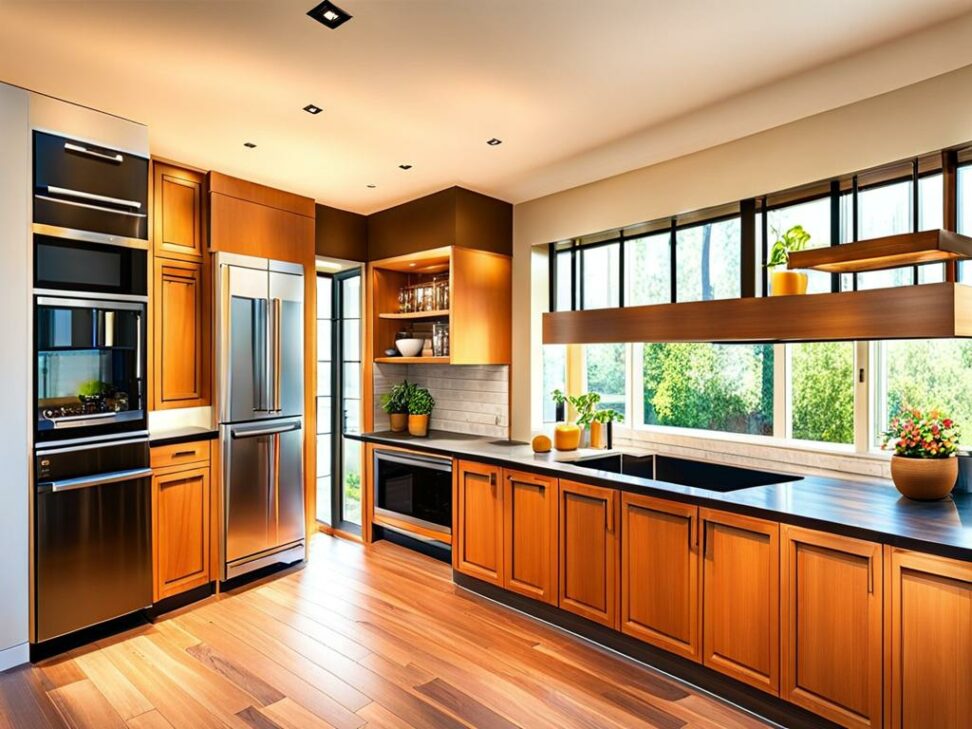Planning a Kitchen Remodel? Don't Start Without This Survival Kit
Dreaming of a brand new, state-of-the-art kitchen? A kitchen remodel can modernize your space and improve functionality. But launching into demolition without proper planning is a recipe for headaches. Avoid unnecessary delays, complications, and expenses by preparing your kitchen renovation survival kit.
With careful advance preparation, you can execute your kitchen overhaul smoothly.
Why Plan Ahead for Your Kitchen Remodel?
It's tempting to rush into knocking down walls to get that gleaming new kitchen. But slow down! Advance planning pays off tremendously for major remodeling projects. Here's why it matters:

- Avoid unexpected issues and complications down the road
- Create an efficient workflow and order of operations
- Identify and obtain all needed permits ahead of time
- Minimize disruption and keep the project on schedule
- Save money by detecting potential problems early
By investing time upfront in thorough preparation, your kitchen overhaul will proceed safely and smoothly. The result? Your dream kitchen brought to life on time and on budget.
Develop a Master Kitchen Remodel Plan
Every complex remodeling project needs a master plan. Map out the major phases and milestones of your kitchen renovation from start to finish. Here's what to include in your master plan:
Set Your Budget
Perform due diligence to establish your budget. Research typical costs using online kitchen remodeling calculators. Get quotes from contractors to estimate accurate numbers for your specific project scope. Factor in a 10-20% contingency fund for unexpected expenses.
Create a Timeline
Outline a realistic timeline identifying major phases like permitting, demolition, construction, cabinet installation, and final clean up. Understand durations and order of operations. Factor in buffer room for inevitable delays and adjustments.
Apply for Permits
Confirm what permits are required through your local permitting office well in advance. File paperwork for necessary building, electrical, plumbing, and construction permits. Allow time for approval processes before demolition day.
Hire Contractors and Specialists
Vet and hire qualified specialists for your renovation like carpenters, electricians, and plumbers. A general contractor can coordinate the whole project. Verify credentials and licenses.
Design and Layout
Finalize designs for cabinetry, countertops, backsplashes, lighting, appliances, and floorplans. Make both functional and aesthetic decisions about your new kitchen's look and layout.
Shop Smart: Materials and Tools
Don't leave critical supplies to the last minute. Procure all required materials and tools well ahead of installation timelines to prevent costly delays.
Cabinetry, Countertops, Backsplash
Determine cabinet styles, surfaces, and backsplash materials needed. Order sufficient quantities with lead time for delivery and adjustments.
Flooring, Paint, Lighting, Plumbing
Make lists of all new sinks, faucets, lighting fixtures, pipes, tiles, and paint. Coordinate electrical and plumbing needs in advance.
Appliances
Order new stoves, refrigerators, dishwashers etc. and schedule delivery and installation at the right construction phase.
Tools
Stock up on all necessary power tools, work gloves, protective gear, and hardware. Avoid tool shortages during active construction.
Organize Storage and Temporary Kitchen
With your kitchen out of commission, make alternate arrangements for the duration of the remodel. Tackle storage and temporary cooking needs.
Pack Up Kitchen Belongings
Box up all kitchen supplies and label contents clearly by the room they'll be moved to. This eases stress of retrieval later.
Create Temporary Cooking Space
Set up a minimal interim cooking area with a microwave, hot plate, and basic utensils in another room. Use your outdoor grill for additional options.
Extra Storage Considerations
For overflow items that won't fit in your home, consider renting a short-term storage unit to house bulky appliances.
Safety Tips and Precautions
Protect yourself, family members, and pets during the messy demolition and construction process.
- Cover floors, electronics, and furniture
- Use plastic sheeting to contain dust
- Wear proper protective gear like goggles and masks
- Keep children and pets away from the active work area
By assembling your kitchen remodel survival kit - your master plan, checklist, materials, and storage strategy - before demolition day, you'll avoid hiccups. Review your plan often to stay on track through each renovation phase. Before you know it, you'll be cooking in the kitchen of your dreams!